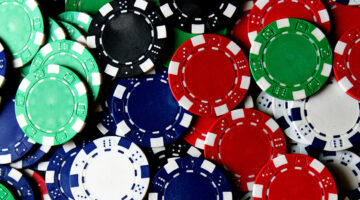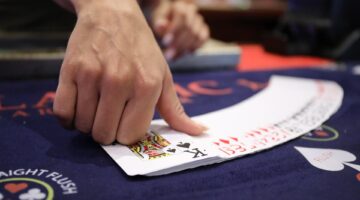Edge Sorting: Pure Cheating, Or A Smart Technique To Help You Beat The House?

Edge Sorting: Pure Cheating, Or A Smart Technique To Help You Beat The House?
In the world of gambling, where skill and strategy often clash with chance, the concept of “edge sorting” has sparked considerable controversy. Depending on who you ask, it’s either an ingenious technique that can give players an advantage or a form of cheating that should be condemned. In this article, we’ll explore the intricacies of edge sorting, its history, and the ethical debate surrounding its use in casinos.
What is Edge Sorting?
Edge sorting is a technique employed by some players to gain an advantage in certain card games, most notably in the game of baccarat. The method involves identifying subtle discrepancies or irregularities on the edges of playing cards that are not perfectly cut. These discrepancies can be the result of manufacturing defects or wear and tear.
The key to edge sorting is to exploit these differences to distinguish between cards with high and low values, giving the player a significant advantage in making betting decisions. By identifying high-value cards, a player can adjust their bets accordingly and increase their chances of winning.
The Notorious Case of Phil Ivey
Edge sorting gained widespread attention in 2012 when the renowned poker player Phil Ivey was accused of using this technique to win millions of dollars at the baccarat tables in two casinos. Ivey’s method involved meticulously observing and requesting specific decks of cards, which he believed had noticeable irregularities on their edges.
Ivey’s actions led to a legal battle, and ultimately, the courts ruled that he had engaged in edge sorting, ordering him to repay the casinos the money he had won. The case highlighted the controversy surrounding this technique and raised questions about whether edge sorting constituted cheating.
The Ethical Debate
The ethical debate surrounding edge sorting hinges on whether it is a legitimate advantage-play technique or a form of cheating. Advocates argue that it is a skill-based approach that relies on the player’s keen observation and knowledge of the game’s equipment. They contend that if casinos use subpar cards, it’s the casino’s responsibility to rectify any manufacturing defects.
On the other hand, opponents argue that edge sorting is tantamount to cheating because it involves manipulating the game’s equipment to gain an unfair advantage. They contend that casinos should not be expected to provide perfectly uniform decks and that players should not exploit imperfections in the cards.
Casino Countermeasures
In response to the controversy surrounding edge sorting, many casinos have implemented countermeasures to prevent this technique from being used to gain an advantage. These countermeasures include using higher-quality cards, changing decks more frequently, and closely monitoring players’ behavior at the tables.
Additionally, some casinos have adjusted their rules to address edge sorting concerns. For example, they may use cards with uniform patterns on the backs to make it more difficult for players to identify irregularities.
Conclusion: Cheating or Skill?
The debate over edge sorting remains polarized. While some view it as a skillful advantage-play technique, others consider it a form of cheating. The legal and ethical implications can vary depending on jurisdiction and casino policies.
Players should be aware that attempting edge sorting in a casino can lead to legal consequences and potential bans. Ultimately, whether edge sorting is seen as cheating or a legitimate technique to gain an edge is a contentious issue that continues to stir debate in the world of gambling. It serves as a reminder that in the casino world, the line between skillful play and cheating can be razor-thin, and individuals should tread carefully to avoid legal and ethical pitfalls.
Relevant news

Poker Terms Explained: Read? Runner-Runner? Rainbow?
Poker Terms Explained: Read? Runner-Runner? Rainbow? Poker is a game rich in terminology, and for…

How Does The WSOP Player Of The Year Points System Work?
How Does The WSOP Player Of The Year Points System Work? The World Series of…
